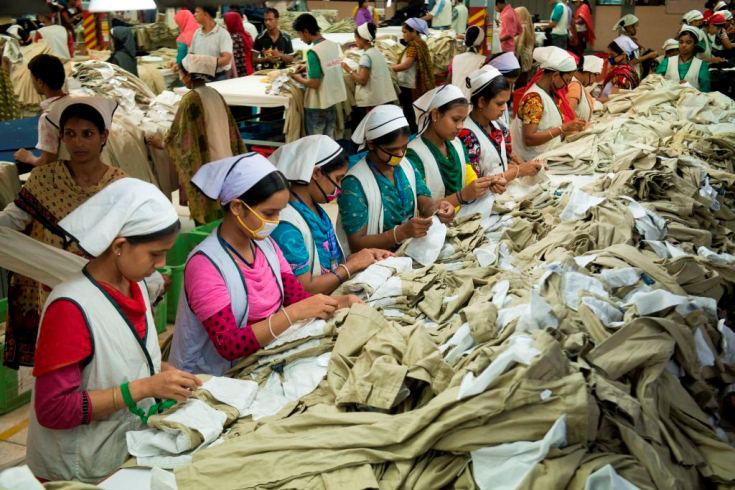2018 Transition Accord in Bangladesh swells to more than 100 brand signatories
 The agreement to improve garment industry safety standards now covers more than 2 million workers
The agreement to improve garment industry safety standards now covers more than 2 million workers
GENEVA, Febr. 14 (NsNewsWire)–Global unions IndustriALL and UNI are announcing today a major milestone for the 2018 Transition Accord on Fire and Building Safety in Bangladesh: the number brand signatories has swelled past 100.
As of today, 101 brands have signed the 2018 Transition Accord, which goes into effect when the 2013 Bangladesh Accord expires in May. The 2018 agreement currently covers more than 1,200 factories and at least 2 million workers. With new brands signing daily, these number are growing rapidly. An updated list of signatories can be found here:http://www.uniglobalunion.org/2018AccordSigners.
“The brands that have signed the 2018 Transition Accord are showing a commitment to transparency and to the safety of Bangladeshi workers,” said Valter Sanches, General Secretary of IndustriALL Global Union. “The Accord’s legally-binding framework is the only credible way to guarantee that life-threatening fire and structural hazards are remediated in a timely manner in ready-made garment and textile factories.”
“We were confident that the vast majority of 2013 signatories would sign the 2018 Transition Accord and now that we have broken 100 signatories, we are almost there,” said Christy Hoffman, Deputy General Secretary of UNI Global Union. “We’ve made improvements to the industry and turning away now simply doesn’t make sense. It is also important to make these advancements in worker safety sustainable through functioning Health and Safety Committees and the Transition Accord will put a priority on this work.”
Speaking at the UNI Commerce Executive meeting in Cape Town, South Africa, Stuart Appelbaum, the President of UNI Commerce and of RWDSU (UFCW)commented: “We are all proud to see so much progress with the Transition Accord, which breaks new ground in protecting freedom of association and continues the original Accord’s key focus on ensuring safety at work. It sends a strong message to employers all over the world that we are serious about changing the rules of the supply chain.”
IndustriALL Assistant General Secretary Jenny Holdcroft added, “The recent legal victory on behalf of Bangladeshi garment workers shows the power of the Accord in action. The Accord It is a legally binding commitment to make factories safe, and it has the power to fundamentally change the way garments and textiles are produced.”
Last month, IndustriALL and UNI reached a US$2.3 million settlement under the 2013 Accord with a multinational apparel brand to remedy life-threatening workplace hazards. It was the second settlement of its kind, and one of the largest payments made by a brand to remedy workplace dangers in its supply chain.
More about the Bangladesh Accord
The Bangladesh Accord, which covers 2.5 million workers in Bangladesh’s ready-made garment industry, was established by IndustriALL and UNI in 2013 following the Rana Plaza disaster that killed over 1,100 garment workers and injured more than 2,000. It is the first agreement with a legally-binding mandate requiring fashion brands to require their contractors to eliminate fire, structural, and electrical safety issues.
Accord inspectors have so far carried out inspections on more than 1,800 factories supplying over 200 brands, identifying over 118,500 fire, electrical, and structural hazards.
Eighty-three percent of workplace dangers identified in the Accord’s original round of inspections have been remediated, and 500 Accord factories have completed 90 percent or more of the necessary fixes.
The 2018 Transition Accord was signed in June of last year. The legally-binding document goes into effect when the original agreement expires in May and extends the Accord’s protections until 31 May 2021, unless a joint monitoring committee—comprised of Accord brand signatories, Accord trade union signatories, the Bangladesh Garment Manufacturers and Exporters Association (BGMEA), the International Labour Organization (ILO), and the Government of Bangladesh) unanimously agrees that a set of rigorous conditions for a handover to a national regulatory body have been met prior to then. PRESS RELEASE
